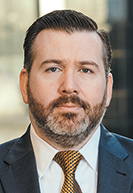Subscriber Benefit
As a subscriber you can listen to articles at work, in the car, or while you work out. Subscribe NowIn a 90-day sprint, colleges and universities across the country have had to spend the summer developing and implementing new processes for handling allegations of sexual misconduct on their campuses, but the schools must wait and see whether all the work will repair a system perceived as unfair and unjust.
The mad dash was driven by the new Title IX regulations published by the U.S. Department of Education May 6. Under the final rule, many institutions of higher education had to make significant changes in how they address complaints of sexual assault and harassment, including conducting hearings with the parties that resemble mini-legal proceedings.
Colleges and universities had to have their new policies and procedures in place by Aug. 14.
The final rule has been touted as clearing the confusion and correcting the missteps that followed the “Dear Colleague Letter” issued in April 2011. Schools have struggled with investigating and adjudicating complaints of sexual misconduct as evidenced by the proliferation of lawsuits, usually filed by male students who claim their right to due process was violated.

Bradley Keffer, founding partner at Keffer Hirschauer LLP in Indianapolis, has represented students accused of Title IX violations. The new regulations do not get into the granular, he said, so schools have plenty of room maneuver and maybe even sidestep.
“I think it’s too early to tell if these regulations are going to make any meaningful change and whether that change will be a positive or negative one,” Keffer said, noting he believes the final rule does address “several glaring deficiencies” in the previous Title IX administrative structure implemented by many schools. “Certainly, any procedural improvements with an eye towards ultimate fairness in the process are welcome.”
In announcing the new regulations, the Department of Education asserted the “Dear Colleague Letter” brought changes that denied due process and led to wrangling in the courts. The final rule, the agency said, will require schools to support survivors of sexual misconduct while providing a fair and transparent process for all parties.
However, a handful of lawsuits have since been filed, seeking to derail the new rule. Plaintiffs, including the American Civil Liberties Union and state attorneys general, claim the regulations weaken Title IX protections, will discourage victims from coming forward and will prevent schools from investigating all but the most egregious sexual misconduct.
A common area of concern a is single-word change that has narrowed the definition of sexual harassment. The misconduct must now be “severe, pervasive and objectively offensive” while the old regulation required the misconduct to be severe, pervasive or objectively offensive.” In one of the lawsuits, the victims’ advocates argue the revised definition will unfairly tilt the grievance process against the complainants.
As to whether the new regulations will bring unintended consequences, Keffer reiterated, it’s too early to tell.
“There is a real possibility that these rules will help promote fairer adjudications,” he said. “However, and just as real, there is the possibility that the net effect of these rule changes will be negligible.”
Quasi-legal hearings
The final rule is mandating significant changes to the hearings that schools typically conduct when the investigation is complete.
These proceedings, typically presided over either by a single officer or a panel, will now resemble quasi-legal hearings complete with the presumption of innocence, standards of evidence and the ability for each side to conduct a cross-examination. Students will be able to have an adviser — either one they select or one appointed for them — with them at the hearing. Although the students can formulate the questions for the cross-examination, only the adviser can ask them and only after the hearing officials determine the inquiry is relevant.

In addition, the parties will be given 10 days to review and rebut the investigator’s findings and another 10 days prior to the hearing to review the materials and evidence.
Amy Foerster, co-chair of the higher education practice group at Troutman Pepper Hamilton Sanders LLP in Harrisburg, Pennsylvania, is concerned that the new regulations require schools to conduct “mini trials,” with evidentiary rulings and cross examinations. Some schools may tap attorneys to preside over the hearings, requiring the investment of significant resources without necessarily advancing the institution’s core mission.
As these conduct proceedings look more like trials, schools might lose their ability to create a process that holds students accountable, when appropriate, and provides a learning opportunity, Foerster said. She is also concerned that victims of sexual violence may choose to remain silent rather than participate in increasingly legalistic hearings.K.C. Johnson, professor at Brooklyn College who has been tracking and studying the Title IX lawsuits filed since 2011, credited the new regulations with honing closely to the court decisions. The final rule draws upon the findings and opinions of the judges who have heard the stories from the accused students.
“To me, that was actually the single most impressive thing about the regulations” Johnson said.
Many of the suits highlight investigation and hearing processes that the courts have found were unfair and failed to provide due process to the accused. For the accused student, the ramifications of a botched hearing can be expulsion from the school as well as forfeiture of their tuition dollars.
In a hearing at Indiana University, a male student alleged witnesses were called and those who answered their phone testified but those who could not be reached were not contacted later. At Purdue University, the female accuser did not appear or submit a written statement at the hearing, but her accusations were presented in a letter written by a rape counselor.
At Indiana Wesleyan University, a John Doe asserted he never had a hearing but instead met a few times with a school dean. He alleged he was never invited to provide a written statement and never received any statements from the accuser or witnesses. After he was expelled, his attorney discovered an incident report, “buried in IWU’s document production” that indicated the female student had claimed she had tested positive for HIV.

Janilyn Daub, partner at Barnes & Thornburg in South Bend, said the DOE had “good reason” to revamp the hearing regulations. The accused students sometimes had very little input in the process and were expelled from their schools without being given the opportunity to understand the allegations or have due process.
With the “new very formal, very legalistic” hearings, some of the process will be hard for colleges to manage, she said. Advisers are limited to only asking the questions while hearing officers are going to be called upon to determine whether a question is relevant.
In response, Barnes has developed and been conducting training seminars for Title IX coordinators, investigators and hearing officers. The programs include presentations and even a mock hearing.
“I think it’s going to elevate the process to a whole new level,” Daub said of the final rule.
Geographic jurisdiction
The new regulations do impose some limits on the schools’ liability under Title IX. Colleges and universities only have to investigate allegations of sexual misconduct that occur on campus or in a program or setting over which the institution has control. An incident happening at a location off campus or on a school-sponsored study abroad setting does not need to be addressed by the colleges and universities.

Even so, Deborah Daniels, partner at Krieg DeVault, LLP, expects schools will respond to all complaints, even those that are out of their jurisdiction. In particular, dismissing some allegations because the misconduct happened off-campus could have a chilling effect on students reporting what happened to them.
“I think, in general, schools are going to probably want to expand this and cover anything that effects the students to the extent they can,” she said. “The downside is they will possibly open themselves up to getting held liable, but schools are going to want to make sure they protect their students.”
Still, the treatment may not be equal.
Johnson said he has noticed colleges and universities instituting a “weird two-track procedure” for the complaints. Alleged misconduct that happens out of the school’s Title IX purview is being handled through the old procedure where the accused is not presumed innocent and not able to see the evidence in advance.
Just like Keffer pointed out, how the new regulations are implemented and what impact they have will only be known over time.
“I think it’s far too early for those who champion these new regulations to celebrate,” he said. “And, equally, it’s far too early for those who fear these new rules will harm victims to actually worry.”•
Please enable JavaScript to view this content.

